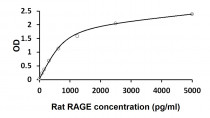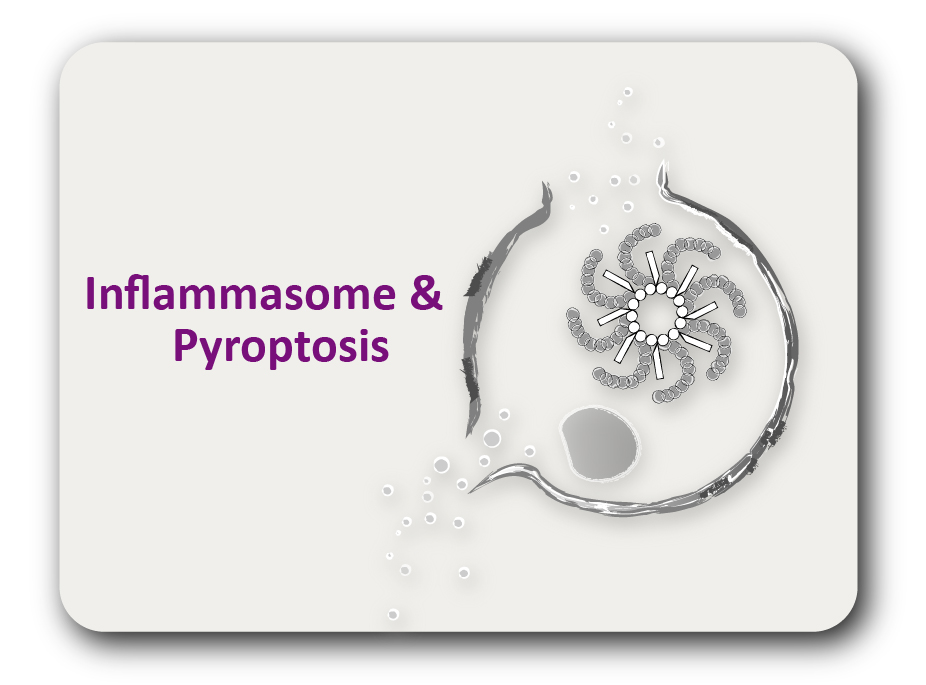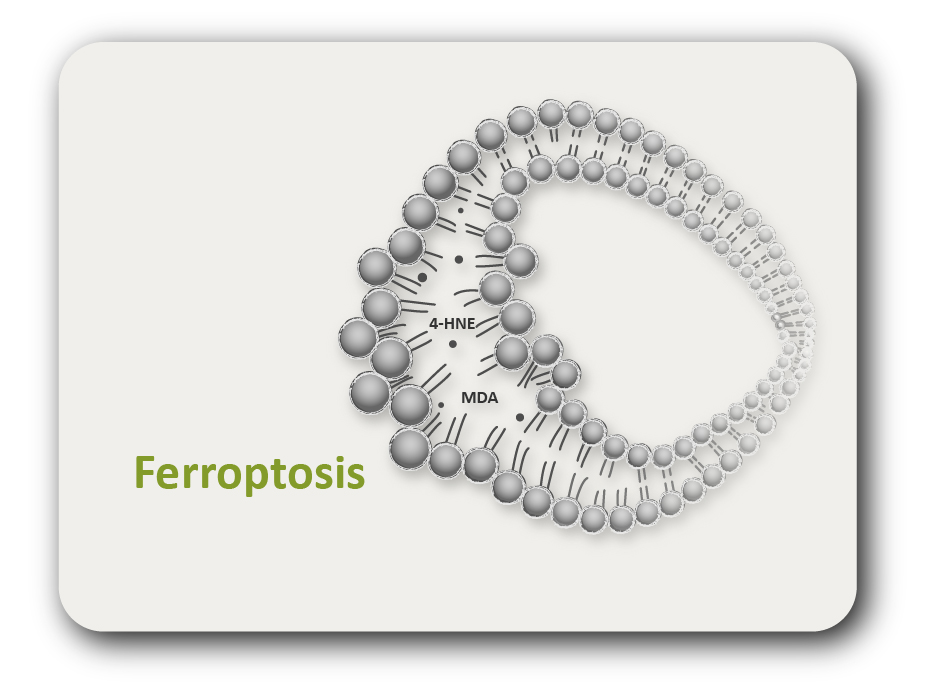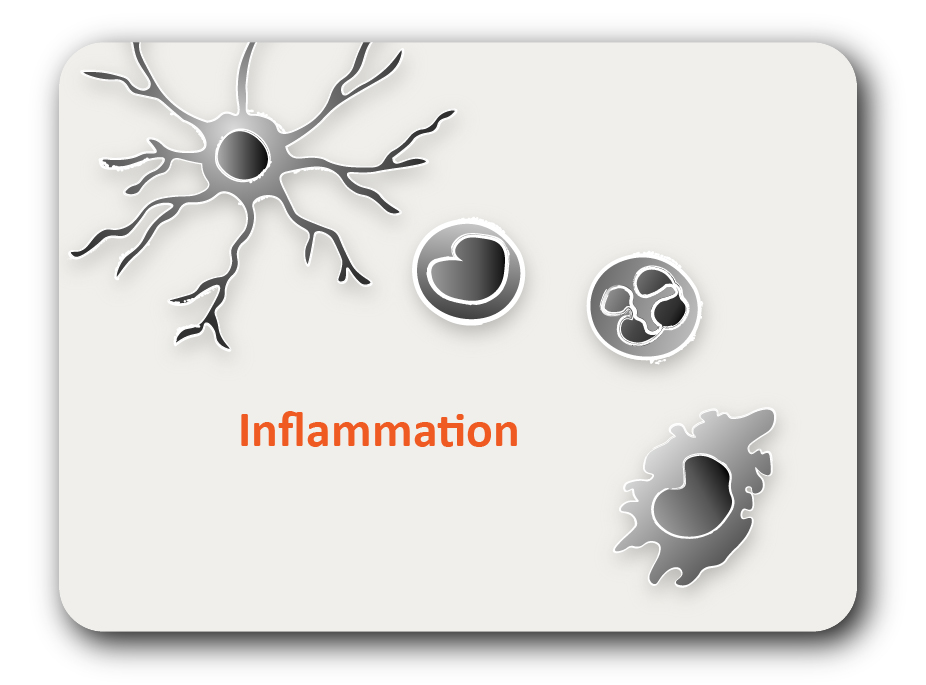ARG81791
Rat RAGE ELISA Kit
Rat RAGE ELISA 试剂盒 for ELISA and Rat
内含物
| 货号 | 内含物名称 | 包装 | 温度 |
|---|---|---|---|
| ARG81791-001 | Antibody-coated microplate | 8 X 12 strips | 4°C. Unused strips should be sealed tightly in the air-tight pouch. |
| ARG81791-002 | Standard | 2 X 10 ng/vial | 4°C |
| ARG81791-003 | Standard/Sample diluent | 30 ml (Ready to use) | 4°C |
| ARG81791-004 | Antibody conjugate concentrate (100X) | 1 vial (100 µl) | 4°C |
| ARG81791-005 | Antibody diluent buffer | 12 ml (Ready to use) | 4°C |
| ARG81791-006 | HRP-Streptavidin concentrate (100X) | 1 vial (100 µl) | 4°C |
| ARG81791-007 | HRP-Streptavidin diluent buffer | 12 ml (Ready to use) | 4°C |
| ARG81791-008 | 25X Wash buffer | 20 ml | 4°C |
| ARG81791-009 | TMB substrate | 10 ml (Ready to use) | 4°C (Protect from light) |
| ARG81791-010 | STOP solution | 10 ml (Ready to use) | 4°C |
| ARG81791-011 | Plate sealer | 4 strips | Room temperature |
概述
| 产品描述 | ARG81791 Rat RAGE ELISA Kit is an Enzyme Immunoassay kit for the quantification of Rat RAGE in serum, plasma (heparin, EDTA) and cell culture supernatants. |
|---|---|
| 反应物种 | Rat |
| 应用 | ELISA |
| 特异性 | There is no detectable cross-reactivity with other relevant proteins. |
| 靶点名称 | RAGE |
| 偶联标记 | HRP |
| 偶联标记说明 | Substrate: TMB and read at 450 nm. |
| 灵敏度 | 39 pg/ml |
| 样品类型 | Serum, plasma (heparin, EDTA) and cell culture supernatants. |
| 标准范围 | 78 - 5000 pg/ml |
| 样本量 | 100 µl |
| 精确 | Intra-Assay CV: 5.8%; Inter-Assay CV: 7.1% |
| 別名 | Receptor for advanced glycosylation end products; Advanced glycosylation end product-specific receptor; RAGE |
应用说明
| 检测时间 | ~ 5 hours |
|---|
属性
| 形式 | 96 well |
|---|---|
| 存放说明 | Store the kit at 2-8°C. Keep microplate wells sealed in a dry bag with desiccants. Do not expose test reagents to heat, sun or strong light during storage and usage. Please refer to the product user manual for detail temperatures of the components. |
| 注意事项 | For laboratory research only, not for drug, diagnostic or other use. |
生物信息
| 基因名称 | AGER |
|---|---|
| 全名 | advanced glycosylation end product-specific receptor |
| 背景介绍 | RAGE: Advanced glycosylation end product (AGE) receptor is a member of the immunoglobulin superfamily of cell surface receptors. It is a multiligand receptor, and besides AGE, interacts with other molecules implicated in homeostasis, development, and inflammation, and certain diseases, such as diabetes and Alzheimer's disease. Many alternatively spliced transcript variants encoding different isoforms, as well as non-protein-coding variants, have been described for this gene (PMID:18089847). [provided by RefSeq, May 2011] |
| 生物功能 | RAGE Mediates interactions of advanced glycosylation end products (AGE). These are nonenzymatically glycosylated proteins which accumulate in vascular tissue in aging and at an accelerated rate in diabetes. Acts as a mediator of both acute and chronic vascular inflammation in conditions such as atherosclerosis and in particular as a complication of diabetes. AGE/RAGE signaling plays an important role in regulating the production/expression of TNF-alpha, oxidative stress, and endothelial dysfunction in type 2 diabetes. Interaction with S100A12 on endothelium, mononuclear phagocytes, and lymphocytes triggers cellular activation, with generation of key proinflammatory mediators. Interaction with S100B after myocardial infarction may play a role in myocyte apoptosis by activating ERK1/2 and p53/TP53 signaling. Receptor for amyloid beta peptide. Contributes to the translocation of amyloid-beta peptide (ABPP) across the cell membrane from the extracellular to the intracellular space in cortical neurons. ABPP-initiated RAGE signaling, especially stimulation of p38 mitogen-activated protein kinase (MAPK), has the capacity to drive a transport system delivering ABPP as a complex with RAGE to the intraneuronal space. Can also bind oligonucleotides. [UniProt] |
| 产品亮点 | Related products: RAGE antibodies; RAGE ELISA Kits; New ELISA data calculation tool: Simplify the ELISA analysis by GainData |
检测图片 (1) Click the Picture to Zoom In
| Title | Download Link |
|---|---|
| ARG81791 Rat RAGE ELISA Kit User's manual |
 Download Download
|






